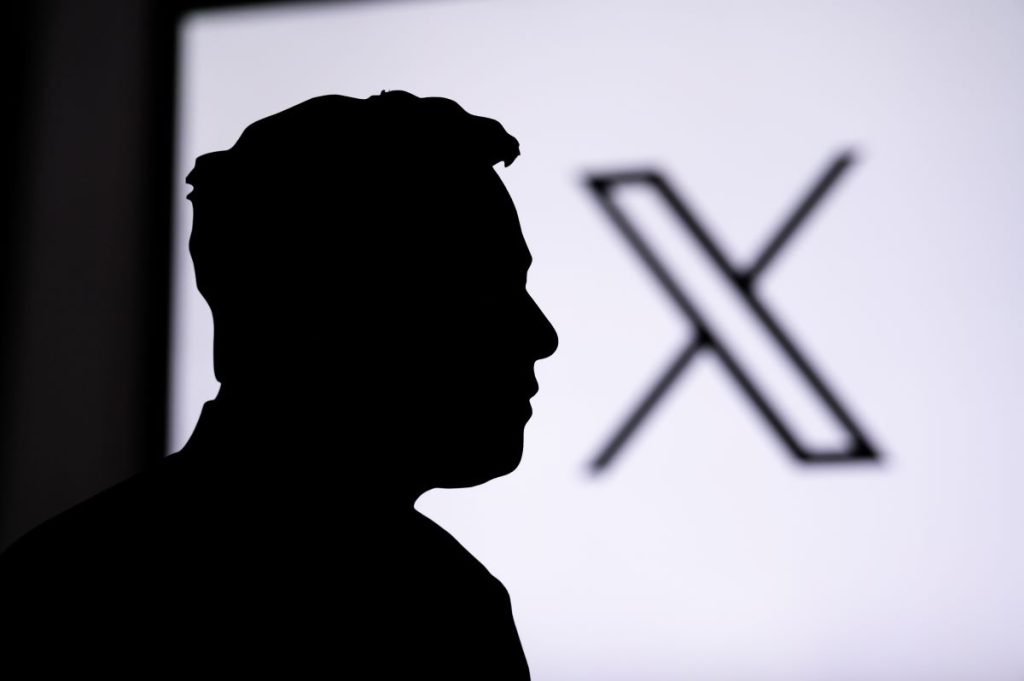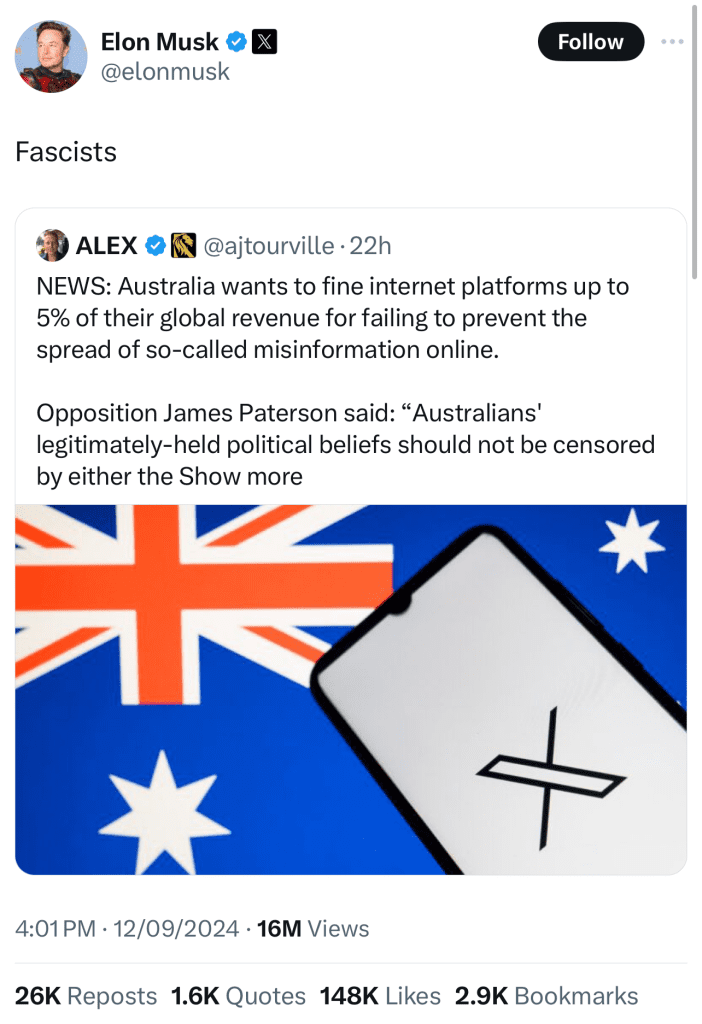
Elon Musk, owner of X, criticized Australia’s proposed law for social media fines on companies that fail to begin regulating social media, calling the government “fascists.”
The centre-left Labor government announced plans Thursday to bring in new rules that could see it introduce fines of up to 5 per cent of a platform’s global revenue if they fail to stop the spread of harmful misinformation and social media regulation.
The new law would force regulating social media companies and other online platforms to develop and police their own codes of conduct on managing misinformation. If they fail to do so, an Australian regulator could step in to set the standards, or even impost fines for no social media compliance.
Government Stance and Response to Musk
Michelle Rowland, the Communications Minister of Australia, has marked broad support for the proposed bill, explaining that it enhances “transparency and accountability of platforms to users and the Australian people.”
A spokesperson further explained on behalf of Rowland that any company operating in the country should ultimately respect its laws.
Social media misinformation regulation is seen as a step towards safeguarding public discourse, especially in light of Australian law on regulating social media which aims to balance freedom of expression with public safety.
Musk’s reaction invited outraged comments from other Australian government officials, claiming his reaction was disproportionate and contradictory.

Government Services Minister Bill Shorten waded into Musk’s changing positions over free speech.
“Elon Musk’s had more positions on free speech than the Kama Sutra. When it’s in its commercial interests, he is the champion of free speech, and when he doesn’t like it, he’s going to shut it all down,” Shorten said on Channel Nine’s breakfast show, addressing the ongoing tension over how social media Australia is regulated, particularly in terms of misinformation.
Assistant Treasurer Stephen Jones added to that, citing that social media platforms should not permit scam content, deepfake materials, or violence to be live streamed in the name of free speech.
In an interview with ABC television, Jones said that freedom of speech mustn’t undermine public safety or conduct that can harm individuals and these views reflect the core issues in regulating misinformation on social media, as misinformation can pose a direct threat to public safety.
A History of Clashes with Australian Authorities
This isn’t the first time Musk’s platform has found itself at odds with Australian authorities. Earlier this year, X was sued by the Australian cyber regulator after it refused to scrub certain posts pertaining to a Sydney stabbing incident.
X had blocked the posts from being able to be viewed in Australia but did not remove them globally, citing that one nation’s laws should not apply on the internet worldwide. This decision afforded Australian Prime Minister Anthony Albanese the opportunity to refer to Musk as an “arrogant billionaire.”
The case was finally over when the regulator decided to withdraw its challenge after facing a setback in federal court. However, the push for Australia social media law continues as the government emphasizes the importance of local compliance by global platforms.
The Australian decision to legislate against misinformation and pushes towards regulating social media, which reflects a worldwide effort to hold tech giants responsible for the content moving on their platforms. In countries where the adoption of similar regulations is being considered, a heated debate continues over a trade-off between freedom of expression and the need to curb dangerous misinformation, with tech leaders like Musk often at the center.
Inside Telecom provides you with an extensive list of content covering all aspects of the tech industry. Keep an eye on our Tech sections to stay informed and up-to-date with our daily articles.